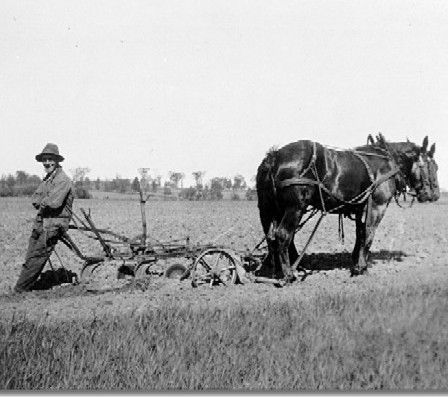At the time of this writing, the confirmation hearing for Secretary Tom Vilsack’s nomination for Secretary of Agriculture under President Biden is currently underway. One of the key cornerstones of Secretary Vilsack’s agenda is to help farmers capture, store, and get paid for the new cash crop in agriculture –...
Making Old Technology New Again
With the increase in focus globally on how humans impact the environment, no group is being challenged more than the people who are responsible for feeding us all. Global populations are projected to increase to almost 10 billion people in the next thirty years, and farmers are faced with the...
No Till Farming
With a rapid rise in population and decrease in agricultural land at a rate of 30 million acres annually, we have made it our mission to return global arable land back to production. By restoring the earth with the adoption of no-till practices and building organic matter, we are addressing...
Golf Course Management
As a leading company with a mission of returning global arable land back to production, we offer gypsum (Calcium Sulfate Dihydrate) soil amendment and crop nutrients that benefit soil for turf management and golf course management programs. We provide revolutionary calcium sulfate-based solutions and cutting- edge science that is vital...
The Calcium Cycle in Agriculture
Inspired by his previous work explaining The Calcium Cycle, we partnered again with Dr. Davidson to create an infographic explaining the calcium cycle in agriculture. Since calcium plays a critical role as a crop nutrient and as a soil amendment, farmers who understand the natural cycle can better manage the calcium in their soils. (Click...
Is Irrigation Harming Your Soil? The Relationship Between Water Quality and Soil Health
Understanding Water Quality Problems and How Gypsum Can Help Solve Them In a new report, Dr. Brent Rouppet, Ph.D., explores how your irrigation water can harm your soil, even when you think it is helping your plants. Learn more about your soil's chemistry, how the irrigation water is damaging the...
Are California Farmers Water Hogs?
In his commentary in the Wall Street Journal, California Farmers Aren't the Water Hogs, Ted Sheely discusses the blame farmers are asked to take for the water shortage in California. Sheely, a farmer himself in California's San Joaquin Valley, argues that the media is not reporting the full picture. The...
Getting the most from your gypsum application
Correcting poor soil structure conditions with an application of gypsum can have a significant impact on soil tilth and crop yields. However, many producers overlook this practice because they are not aware of the benefits to soil structure as well as a readily available source of calcium and sulfur. One...
How much sulfur should be in my soil for optimal growing?
How much sulfur do plants need for optimal growing? Both the yield and quality of crops grown on sulfur-deficient soils are reduced unless supplemental sulfur is included as fertilizer. Sulfur can increase crop yields and quality and result in significant economic returns to producers. It also improves fertilizer efficiency. Sulfur...
It’s soil science! Available calcium and the cation exchange complex…
Soluble versus Extractable Calcium - soil science Calcium is secondary nutrient in plants and is an important part of cell walls. Calcium is often times abundant in the soil as an element but can be tied up with carbonate – forming calcium carbonate and other secondary minerals. There is also...


